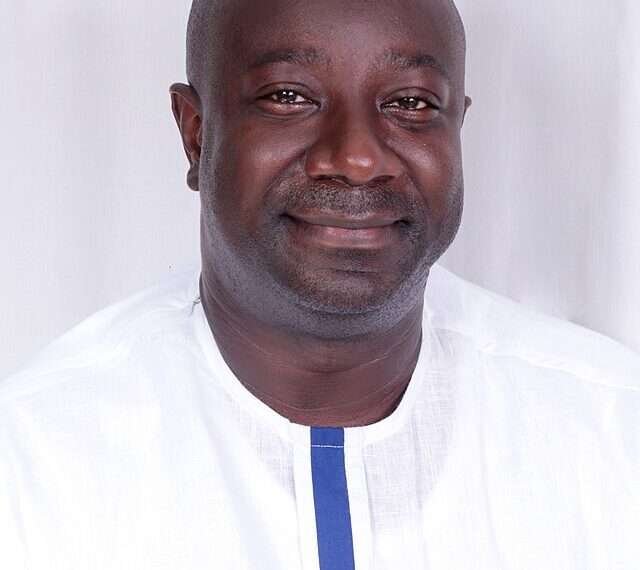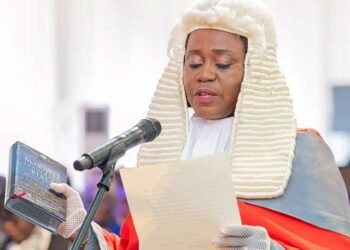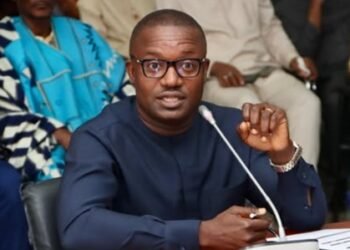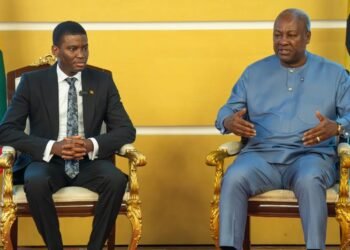The Member of Parliament (MP) for Anyaa Sowutuom, Hon. Dickson Amoako Kissi, has raised a thought-provoking argument surrounding the rights of MPs to make future political arrangements while still serving in the current Parliament.
In his statement, he highlighted the complexity of holding MPs accountable for future decisions and likens this situation to the world of football, a comparison intended to make the issue more relatable to the general public.
Hon. Kissi’s reflections call for a more logical and less politically motivated approach to dealing with the decisions of sitting MPs.
The Football Analogy: Contracting for the Future
Hon. Kissi began his argument by drawing an analogy from football to explain the issue in simpler terms for ordinary Ghanaians who might be struggling to grasp the constitutional and legal complexities of the current political debate.
“If a player for one team signs a contract for the future, maybe from Real Madrid to, let’s say, Manchester United, would you stop the player when they are playing for their current team and then say that because they’ve signed a future contract, they should leave the pitch?”
Hon. Dickson Amoako Kissi Member of Parliament (MP) for Anyaa Sowutuom
Hon. Kissi’s point here is to emphasize that just as a football player is not punished for making plans, MPs should not be penalized for political arrangements concerning future Parliaments.
He further questions whether it is just to punish MPs who have made plans, while still fulfilling their duties in the current Parliament. He asked; “Shall we punish members of Parliament who have arranged for a different system arrangement in the future today?”
The Role of the Speaker and the Supreme Court
Hon. Kissi also delved into the role of the Speaker of Parliament in this debate. He argued that despite directives from the Supreme Court, much depends on the Speaker’s interpretation and decision.
He underscored that the Speaker wields significant power, as his decision will shape the consequences that follow. Kissi explained.
“Truth be told, though the Supreme Court has made some directives, a lot rests on the Speaker to agree or disagree, and then the consequences will follow after that.”
Hon. Dickson Amoako Kissi Member of Parliament (MP) for Anyaa Sowutuom
He also warned of the dangers of making politically motivated decisions rather than sound, logical ones.
According to him, the Speaker’s decision is inherently political, but that does not justify punishing MPs for changing their “club” or political party affiliation for future arrangements.
“I think that every public official who holds an office wields power not necessarily for them but for the people. And in that regard, our decision ought to be made on very sound and logical decisions.”
Hon. Dickson Amoako Kissi Member of Parliament (MP) for Anyaa Sowutuom
Ambiguity in the Constitution: A Question of Interpretation
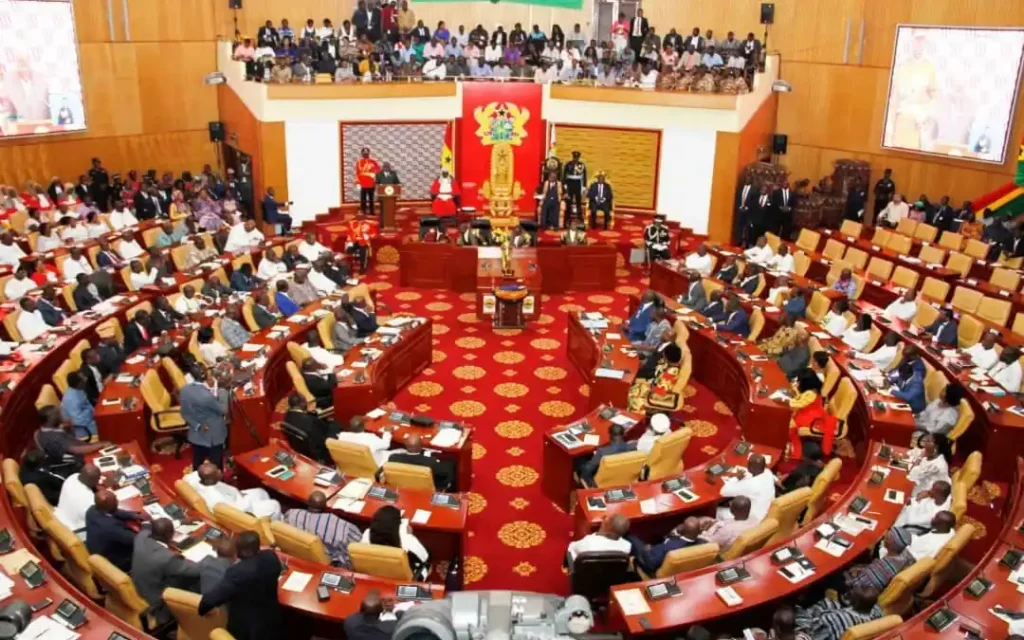
Hon. Kissi also questioned whether the Constitution is clear on the issue of MPs making future political arrangements.
He suggested that the constitutional provisions are somewhat ambiguous, particularly when juxtaposed with his football analogy.
Hon. Kissi highlighted that there have been precedents in the past, referencing the case of Inusah Fuseini, an NDC member, who changed parties during a previous parliamentary era.
He used this to argue that MPs have previously switched allegiances without being punished.
In his view, the punishment of MPs, like the recent case of Kwasi Kwarteng, is unjust, especially when those MPs were making decisions about future political alignments.
“When you change parties during like the 8th Parliament if you are changing to go independent or go to NDC or NPP, then I agree that you should vacate like we did with Quayson.”
Hon. Dickson Amoako Kissi Member of Parliament (MP) for Anyaa Sowutuom
However, he drew the line at decisions that concern future Parliaments. Hon. Kissi believes it is unjust for the Speaker of the current Parliament to punish MPs for decisions that concern the 9th Parliament: He reiterated; “How can a speaker of the 8th make a decision concerning the 9th, which you will not necessarily supripretend?”
The Dangers of Precedent: Wrong Assumptions in Parliamentary Decisions
Hon. Kissi went on to caution against using the wrong assumptions when setting precedents.
He contended that while precedent matters, repeating the wrong precedent perpetuates injustice.
“Today, the Fomena MP even still has a right to file a suit for vacating him unceremoniously or, you know, prematurely when he had a few more weeks to represent the good people of Fomena.”
“Anything done to one member of Parliament, it’s not just that parliamentary member, but the people he represents.”
Hon. Dickson Amoako Kissi Member of Parliament (MP) for Anyaa Sowutuom
Logic and Justice: An Appeal to Sound Decision-Making
Hon. Kissi closed his argument with an appeal to logic and justice. He insisted that decisions regarding MPs and their future political alignments should not be based on the whims of the current Parliament.
He also proposed that decisions made regarding an MP’s future political plans should be handled with care, given that they will take effect in future parliaments, not the current one.
“We are using very logical ways to make decisions. And I believe that if the decision is about the 8th Parliament, that members have decided to change their status about the 8th Parliament, then it’s just punishment. But this is not about the 8th [Parliament].”
“The [Speaker] should have also allowed these processes to unfold or he could have even just inquired from the High Court that are these MPs’ seats [are] to be vacated?”
Hon. Dickson Amoako Kissi Member of Parliament (MP) for Anyaa Sowutuom
Hon. Kissi’s argument encapsulated the tension between legal, political, and logical considerations in Ghana’s parliamentary system, advocating for sound decision-making rooted in fairness and justice.
READ ALSO; Rev. Obofour Pleads With Ghanaians to Forgive Bishop Salifu



